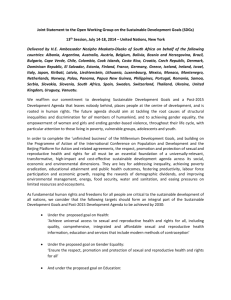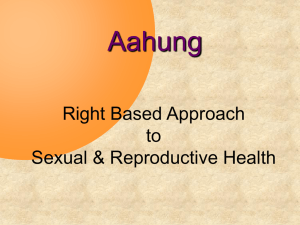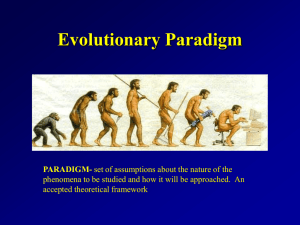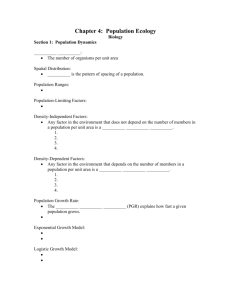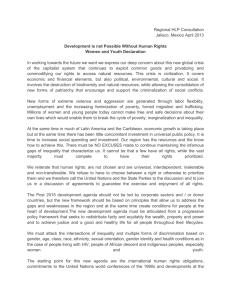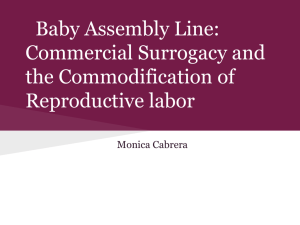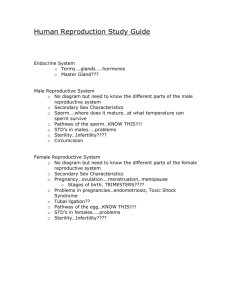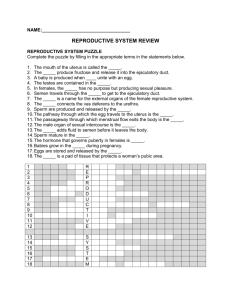Leila Hessini, Coalition of Organizations working on Sexual and
advertisement
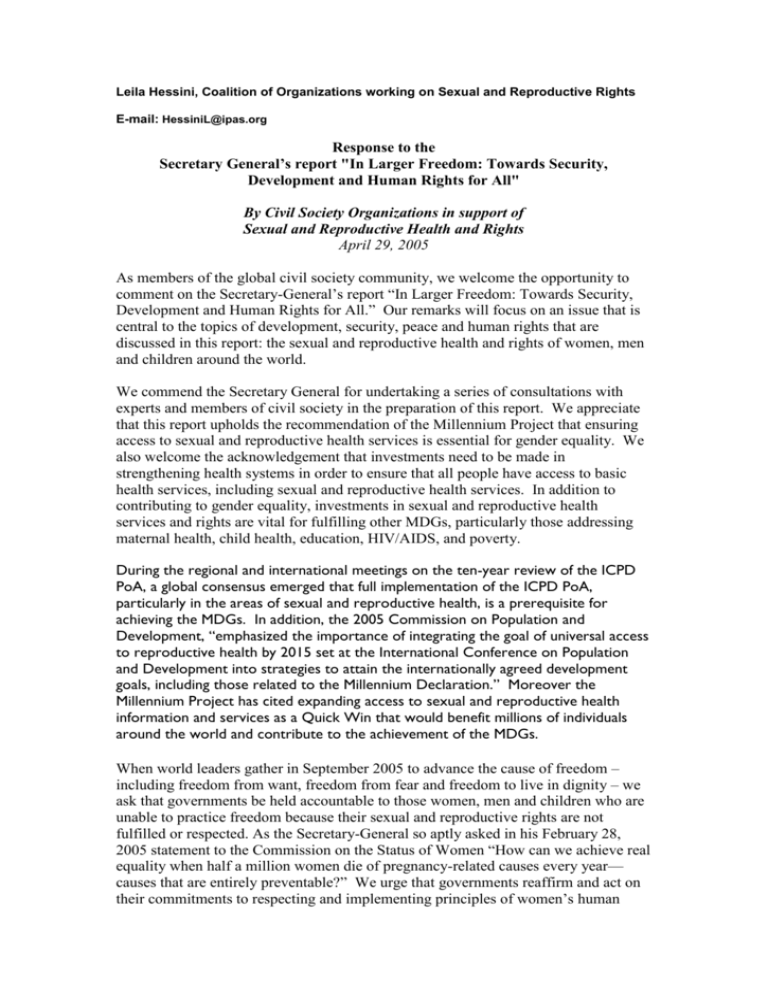
Leila Hessini, Coalition of Organizations working on Sexual and Reproductive Rights E-mail: HessiniL@ipas.org Response to the Secretary General’s report "In Larger Freedom: Towards Security, Development and Human Rights for All" By Civil Society Organizations in support of Sexual and Reproductive Health and Rights April 29, 2005 As members of the global civil society community, we welcome the opportunity to comment on the Secretary-General’s report “In Larger Freedom: Towards Security, Development and Human Rights for All.” Our remarks will focus on an issue that is central to the topics of development, security, peace and human rights that are discussed in this report: the sexual and reproductive health and rights of women, men and children around the world. We commend the Secretary General for undertaking a series of consultations with experts and members of civil society in the preparation of this report. We appreciate that this report upholds the recommendation of the Millennium Project that ensuring access to sexual and reproductive health services is essential for gender equality. We also welcome the acknowledgement that investments need to be made in strengthening health systems in order to ensure that all people have access to basic health services, including sexual and reproductive health services. In addition to contributing to gender equality, investments in sexual and reproductive health services and rights are vital for fulfilling other MDGs, particularly those addressing maternal health, child health, education, HIV/AIDS, and poverty. During the regional and international meetings on the ten-year review of the ICPD PoA, a global consensus emerged that full implementation of the ICPD PoA, particularly in the areas of sexual and reproductive health, is a prerequisite for achieving the MDGs. In addition, the 2005 Commission on Population and Development, “emphasized the importance of integrating the goal of universal access to reproductive health by 2015 set at the International Conference on Population and Development into strategies to attain the internationally agreed development goals, including those related to the Millennium Declaration.” Moreover the Millennium Project has cited expanding access to sexual and reproductive health information and services as a Quick Win that would benefit millions of individuals around the world and contribute to the achievement of the MDGs. When world leaders gather in September 2005 to advance the cause of freedom – including freedom from want, freedom from fear and freedom to live in dignity – we ask that governments be held accountable to those women, men and children who are unable to practice freedom because their sexual and reproductive rights are not fulfilled or respected. As the Secretary-General so aptly asked in his February 28, 2005 statement to the Commission on the Status of Women “How can we achieve real equality when half a million women die of pregnancy-related causes every year— causes that are entirely preventable?” We urge that governments reaffirm and act on their commitments to respecting and implementing principles of women’s human rights and gender equality that are so central to sexual and reproductive health and rights. We furthermore strongly recommend that the political declaration resulting from the September Millennium Summit: Endorse the recommendations on sexual and reproductive health and rights made by the UN Millennium Project and its Task Forces, particularly those on Maternal and Child Health and Gender Equality. Support the seven strategic priorities generated by the Millennium Project Task Force on Gender Equality including: “(The) guarantee of sexual and reproductive health and rights.” Emphasize the importance of integrating the goal of universal access to reproductive health by 2015 set at the International Conference on Population and Development into strategies to attain the internationally agreed development goals, including those related to the Millennium Declaration With world leaders gathering in September 2005 to review progress in achieving the MDGs, there is the opportunity to reaffirm their commitment to sexual and reproductive health and rights. Statement from: Catholics for a Free Choice Center for Reproductive Rights, USA CHOICE, for Youth and Sexuality, Netherlands Commonwealth Medical Trust Development Alternatives for Women in a New Era (DAWN) Equilibres & Populations, France Family Care International Interact Worldwide International Foundation for Population and Development (IFPD), Switzerland International Planned Parenthood Federation, United Kingdom International Women’s Health Coalition (IWHC) Ipas, on behalf of its offices and programs in 13 countries of the Americas, Europe, Latin America, Africa and Asia Marie Stopes International Planned Parenthood Federation of America, Inc. Population Action International sensoa, Belgium The Swedish Association for Sexuality Education (RFSU) Women for Women's Human Rights (WWHR) - NEW WAYS, Turkey Women's Global Network for Reproductive Rights (WGNRR) World Population Foundation YouAct, European Youth Network for Reproductive Health and Rights, Netherlands The Youth Coalition
